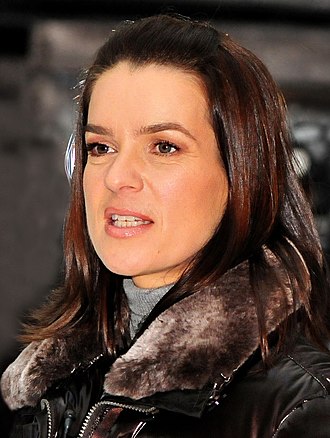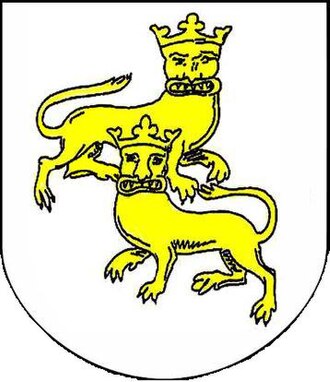Discover Your Roots
SIGN UPDiscover Your Roots
SIGN UPKatarina is a captivating female name of Italian origin, meaning "Pure." This timeless name has a rich history and is widely used in various cultures, including Slovak, Croatian, Serbian, Swedish, and Slovenian. Notable individuals bearing the name Katarina have excelled in diverse fields, from acting and sports to royalty and fiction. In Croatia and Serbia, Katarina is a popular choice for girls, reflecting its enduring appeal. The name's association with purity evokes a sense of elegance and grace, making it a meaningful choice for parents seeking a name with a deep and positive significance. From historical figures to fictional characters, Katarina embodies a sense of strength and character, resonating with its profound meaning across different contexts.

Katarina Witt, born on December 3, 1965, is a renowned former German figure skater, widely recognized as one of the greatest ladies' singles figure skaters in history. She achieved unparalleled success, winning two Olympic gold medals, four World Championships, and six consecutive European Championships. Her exceptional athleticism, charismatic appeal, and glamorous image on the ice captivated audiences worldwide. Witt's dedication and talent led her to win ten gold medals in eleven major international events between 1984 and 1988, solidifying her status as one of the most successful figure skaters of all time. After retiring from competitive skating in 1988, she made a memorable comeback at the 1994 Winter Olympics, representing a reunified Germany and receiving the prestigious Goldene Kamera award for her performance. Witt has since transitioned to a career in film and television, showcasing her versatility and talent beyond the ice. Born in East Germany, Witt's journey to greatness began with rigorous training and unwavering determination, laying the foundation for her extraordinary career.

Katarina Barley, born on November 19, 1968, is a prominent German politician and lawyer. She has been a Member of the European Parliament since 2019 and serves as one of its Vice-Presidents. Katarina has a rich political background, having served as Federal Minister of Justice and Consumer Protection in Angela Merkel's fourth Cabinet. She has also held positions as Federal Minister of Family Affairs, Senior Citizens, Women and Youth, and acting Federal Minister of Labour and Social Affairs. Katarina is affiliated with the Social Democratic Party of Germany and has been an active member of the Bundestag from 2013 to 2019, while also holding the role of Secretary-General of her party from 2015 to 2017.Katarina Barley's educational journey includes obtaining law degrees from France and Germany, as well as a doctorate in European law. She has worked in various legal capacities, from corporate lawyer to judge and governmental legal adviser. Katarina's upbringing in Cologne, with her father being an English-born journalist and her mother a German physician, greatly influenced her sense of social justice.With fluency in German, English, and French, Katarina Barley has been actively involved in shaping Germany's political landscape. Her impressive career trajectory and commitment to public service have established her as a respected figure in European politics.

Katarina Eriksdotter, a Swedish princess from the 12th century, was the daughter of King Eric the Saint and Queen Kristina. She tied the knot with Nils Blake, believed to be a prominent figure in Sweden. Their union bore a daughter named Kristina Nilsdotter, who went on to marry the Norwegian Earl Hakon the Mad and later Eskil Magnusson, the lawspeaker of Västergötland. Katarina's lineage and connections made her a significant figure in the political landscape of her time. Her descendants played crucial roles in the Nordic regions, further cementing her legacy in history.

Katarina Asplund (1690-1758) was a prominent figure in the Finnish pietism movement, particularly in Ostrobothnia. Recognized for her visionary nature, she frequently found herself at odds with the authorities due to her visionary activities, leading to accusations of blasphemy. Her influence within the pietism movement and her clashes with the authorities have solidified her place in history. For more in-depth information, the interested reader can refer to the "Svenskt kvinnobiografiskt lexikon."

Katarina Köhler, born in 1954, is a prominent Swedish politician, teacher, and former member of the Riksdag, Sweden's national legislature. Affiliated with the Social Democratic Party, she served as the representative of Västerbotten County from October 2010 to September 2018. Prior to this, she acted as a substitute member of the Riksdag for Ibrahim Baylan on two occasions: October 2006 and September 2007 to December 2007. Köhler's upbringing was rooted in a farming family, being the daughter of Gunnar Köhler and Aili Regina Köhler. Her educational journey led her to Gällivare, where she pursued studies in organisational development and leadership at Dalarna University, as well as process pedagogy at Luleå University of Technology. Notably, she dedicated several years to teaching in Skellefteå, serving from 1986 to 1992 and again from 1994 to 2010. Additionally, she was an esteemed member of the municipal council in Skellefteå Municipality from 2006 to 2010. Katarina Köhler's contributions have left a lasting impact on the political and educational landscape of Sweden.
All images displayed on this page are sourced from Wikipedia or Wikimedia Commons.We use these images under their respective Creative Commons or public domain licenses. Wherever applicable, author attributions and license information are provided. If you believe an image is used incorrectly or outside its license terms, please contact us so that we can review and correct the issue.